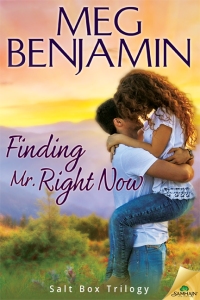 If I were given a choice between writing a synopsis and writing a blurb (and believe me, that’s a horrible choice), I’d go with the synopsis. Synopses are basically summaries, and most of us have some experience with summarizing. You’ve got three or four pages, and your main job is to pick out the major incidents of the plot without getting too bogged down in detail. And, of course, you have to make the prose flow without constantly saying And then. They’re not fun to write, but I can usually knock one out in a couple of hours.
If I were given a choice between writing a synopsis and writing a blurb (and believe me, that’s a horrible choice), I’d go with the synopsis. Synopses are basically summaries, and most of us have some experience with summarizing. You’ve got three or four pages, and your main job is to pick out the major incidents of the plot without getting too bogged down in detail. And, of course, you have to make the prose flow without constantly saying And then. They’re not fun to write, but I can usually knock one out in a couple of hours.
Blurbs, on the other hand, suck.
Blurbs are the copy found on the back of print books or at the front of ebooks. They’re also the copy that shows up in ads for the book and on Web pages. While you have three or four pages for synopses, you’ve got three or four paragraphs (at most) for the blurb. And the language has to be sort of “peppy.”
Basically, you’re writing ad copy, and for those of us who have never been in the advertising or marketing business, the process can be excruciating. My first impulse is always to overdo the peppiness. I use many, many exclamation marks!!!!! I may use italics with abandon. If I’m blurbing a contemporary romance, I emphasize fun, fun, fun.
After I’ve read over the first draft and started to moan, I settle down and try again. This time I try to think about what’s really going on in the book. What’s the real reason a person might enjoy reading it?
The extreme brevity means I’m never able to include everything that happens in the book, but I try to suggest the major themes, or at least some of them. Chances are, though, that I’ll end up leaving out something crucial just because I have to.
So about the blurb for Finding Mr. Right Now. As usual, I had a lot of professional help (most publishing houses have blurb editors who can kick your blurbs into shape). And as usual, not everything that happens in the book shows up in the blurb. But it does cover the basics: reality show, Colorado mountain town, hot couple.
Monica McKellar, associate producer of Finding Mr. Right, is desperate. One of the show’s bachelors has bailed one week before shooting starts. She not only needs a replacement ASAP, he has to get the temperamental bachelorette’s stamp of approval.
Fortunately there’s a hot guy right under her nose who’s a perfect fit. Unfortunately, he pushes all her hot buttons. Until the show’s over, her hands—and every other part of her body—are tied.
When Paul DeWitt signed on to write for the reality show, “Bachelor #10” wasn’t supposed to be in his job description. He fully expects to be cut early on, which will free him to focus on the real object of his attraction. Monica.
Instead, he’s a finalist, and they’re all packed in an SUV climbing the Continental Divide, headed for Salt Box, Colorado. Where stampeding horses, vindictive tabloid editors, and one capricious bachelorette’s waffling over suitors may conspire to end Paul and Monica’s romance before it even starts.
Finding Mr. Right Now is available for preorder from Amazon, Barnes and Noble, and All Romance Ebooks. It will be released on June 2.
